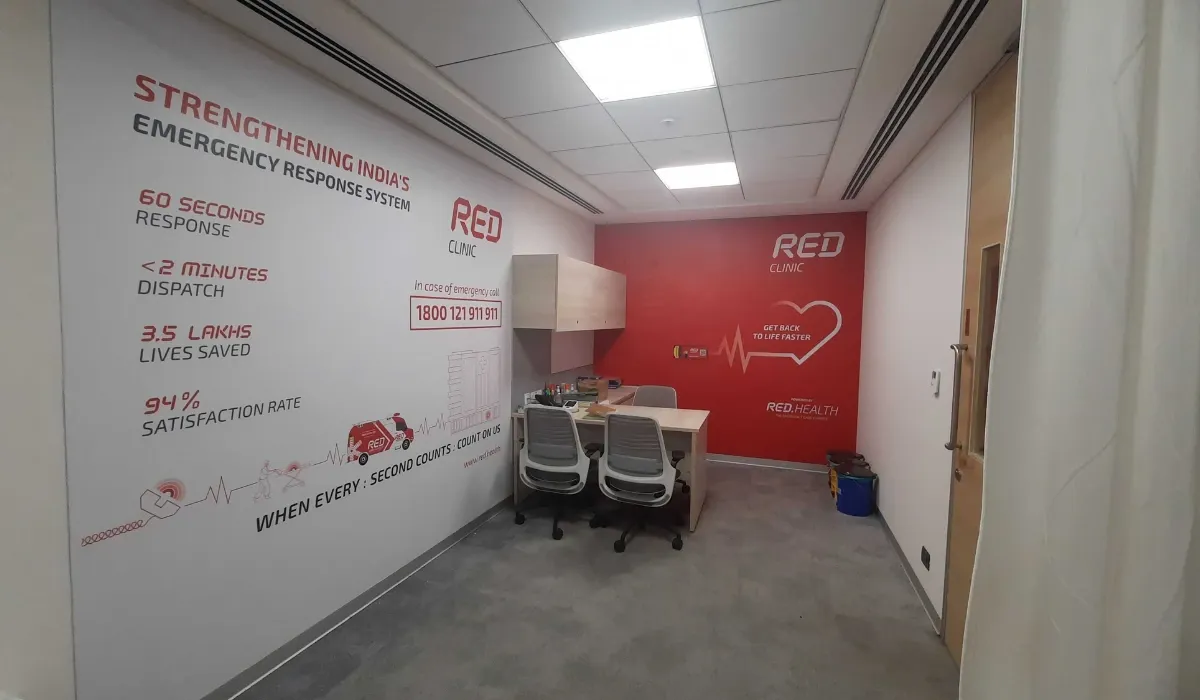
Imagine this: You’re at work when one of your colleagues fell accidentally. Panic sets in, but what if there was a team on-site to provide immediate emergency care? Occupational healthcare services can help make this a reality, resulting in a safer and healthier work environment.
According to International Labour Organization (ILO) research, industrial accidents kill approximately 47,000 workers in India each year. This demonstrates the crucial need for comprehensive occupational health services in Indian workplaces.
But what precisely do these services involve, and why are they so important in India’s fast-paced work environment? Let’s look at how occupational health services offered by RED.Health improve employee well-being and are becoming increasingly important in businesses around India.
Occupational health services are a complete strategy for maintaining and improving employee health in the workplace. These services aim to reduce workplace illnesses and injuries, provide healthcare services, and ensure that employees work in a safe atmosphere. The goal is to have a healthy workforce that is both productive and satisfied.
In India, laws such as the Factories Act of 1948 and the Occupational Safety, Health, and Working Conditions Code of 2020 mandate occupational health care. These laws require companies to provide safe working conditions and medical facilities and prevent workplace risks, establishing a legal obligation to protect employees’ health and well-being.
In a country like India, where enterprises are quickly expanding, there is a growing need for efficient and effective workplace healthcare services. Our occupational health services address this demand by providing a variety of advantages, including emergency care and regular health check-ups. Here’s how these services have an impact:
In addition to day-to-day health management, occupational health services play an essential role in disaster preparedness. In India, where natural calamities and industrial accidents are regular, having a well-prepared workforce might help save lives.
RED.Health occupational health services offer training in emergency response, first aid, and the use of emergency medical supplies. This guarantees that staff are not only aware of the hazards but also prepared to deal with situations properly.
For example, in industries where accidents are more common, having trained individuals available to give prompt care helps avoid fatalities and lessen the severity of injuries. This level of preparedness fosters a safer work environment while increasing employee confidence and morale.
A healthy workforce is a productive one. When employees believe their health and well-being are prioritised, they are more likely to be engaged and motivated at work. Occupational health services help to achieve this by providing a supportive environment in which employees feel cared for.
Occupational health services are becoming increasingly important in India as more businesses recognise the relationship between employee well-being and company success. With the growth of industries such as IT, manufacturing, and construction, the demand for comprehensive occupational health services is greater than ever.
Furthermore, the Indian government emphasises the importance of worker safety and health. Recent legislation requires corporations to provide basic healthcare services to their employees, increasing the use of occupational health services across many industries.
As awareness of the value of employee well-being grows, the future of occupational health services in India is bright. Companies are realising that investing in their employees’ health is not only a moral imperative but also an excellent financial strategy. As technology advances, we should expect more novel solutions, like telemedicine and mobile health units, to be integrated into occupational health care.
Employee well-being is critical to every firm. Occupational healthcare services prevent accidents and diseases while promoting a healthier, more productive workforce. Companies that engage in employee health in India, where these services are expanding in demand, would profit from increased productivity, contentment, and overall success. A reliable partner like RED.Health provides high-quality occupational health services, including healthcare, emergency treatment, and emergency medical supplies. Partnering with RED.Health ensures the greatest care for your employees, resulting in a safer, more productive work environment.